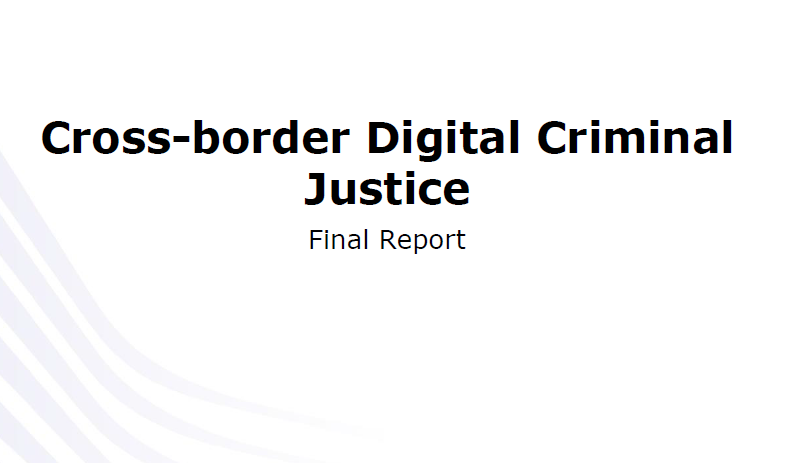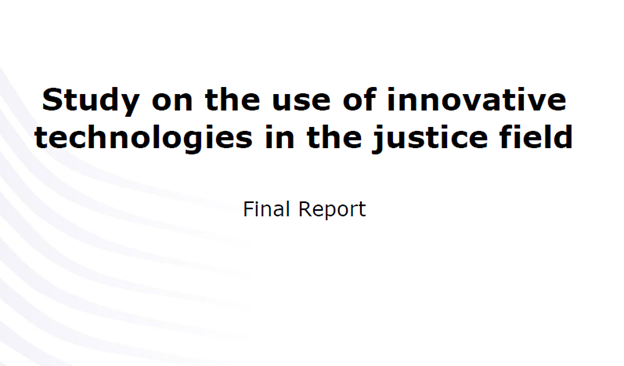For a quick search in the Knowledge database below, please use the search box. Also, note that using one or more of the dropdown filters will optimise your search.
Watch this video to find out more about our Knowledge Database and the publications we have collected here for you: video
Knowledge Database
-
Cybercrime: COVID-19 Impact
Interpol | Published in 2020
The unprecedented coronavirus pandemic is profoundly affecting the global cyberthreat landscape. Compounding a global health crisis with a sharp increase in cybercriminal activities related to COVID-19 is putting significant strain on law enforcement communities worldwide.INTERPOL’s Cybercrime Directorate produced this Global Assessment Report on COVID-19 related Cybercrime based on its unique access to data from 194 member countries and private partners to provide a comprehensive overview of the cybercrime landscape amid the pandemic. The report is based on data collected from member countries and INTERPOL private partners as part of the INTERPOL Global Cybercrime Survey conducted from April to May 2020.
Keywords: covid, crisis response, cybercrime -
Catching the virus: cybercrime, disinformation and the COVID-19 pandemic
Europol | Published in 2020
Cybercriminals have been among the most adept at exploiting the COVID-19 pandemic for the various scams and attacks they carry out. With a record number of potential victims staying at home and using online services across the European Union (EU) during the pandemic, the ways for cybercriminals seeking to exploit emerging opportunities and vulnerabilities have multiplied. Europol has been monitoring the impact of the COVID-19 pandemic on the cybercrime landscape since the beginning of the current crisis and can present an updated threat picture and assessment of potential further developments in this crime area. The threat from cybercrime activities during the crisis is dynamic and has the potential to increase further. Europol is investing resources and capacities to continue to support EU Member States and other partner law enforcement authorities to counter threats during this difficult situation. The findings of this report are mainly based on contributions to Europol from Member States and Europol’s partner countries.
Keywords: covid, crisis response, cybercrime -
Courthouse Facility Dogs: Assisting in the Investigation and Prosecution of Crimes
Oregon State Bar | Published in 2017
Keywords: facility dogs, justice -
Dogs in the criminal justice system: Consideration of facility and therapy dogs
Elizabeth Spruin and Katarina Mozova | Published in 2018
This piece provides a theoretical and practical analysis of topics surrounding the use of specially trained dogs to support criminal justice system users with the view of highlighting our lack of knowledge on the topic and practical challenges of this service.
Keywords: facility dogs, trauma, victim services -
Facility Dogs in the Courtroom: Comfort Without Prejudice?
Kayla A. Burd and Dawn E. McQuiston | Published in 2019
Courthouse facility dogs are expertly trained canines that assist individuals with psychological, emotional, or physical difficulties in a myriad of courtroom situations. While these animals are increasingly used to assist young witnesses in court, it is not yet known whether they are prejudicial to defendants or the witnesses they accompany during trial. Across two studies utilizing mock trial paradigms involving child witnesses, we explored the impact of courtroom accommodations (facility dog vs. teddy bear vs. no accommodation) on mock jurors’ judgments about the defendant and child witness. In Experiment 1, teddy bears, but not facility dogs, were prejudicial to defendants, while in Experiment 2, neither facility dogs nor teddy bears were prejudicial. Further, mock jurors’ perceptions of the child witness were not influenced by courtroom accommodations. Evidence from both studies suggests that, contrary to various legal arguments concerning due process, facility dogs may not influence verdict, verdict confidence, or sentencing.
Keywords: facility dogs, justice -
Applying Problem-of-Practice Methods from the Discipline of Higher Education within the Justice System: Turning the Concept of Therapy Dogs for Child Victims into a Statewide Initiative.
Jessie Holton | Published in 2015
This Dissertation-in-Practice introduces a law enforcement concept-to-practice model designed by combining tested methods of organizational analysis often utilized by those in the discipline of education. The model incorporates a two phase design with the first phase focusing on implementing and evaluating innovative changes within a medium size law enforcement agency for a micro-level analysis. A second phase examines the ability to replicate the concept program on a statewide, macro-level, by incorporating a re-design method utilizing organizational resource and structure frames. The concept applied to this model was the introduction of a therapy dog interaction during investigations involving crimes against children to reduce anxiety and increase communication.
Keywords: children, facility dogs, trauma, victim services -
Sit… Stay… Now Beg for Me: A Look at the Courthouse Dogs Program and the Legal Standard Pennsylvania Should Use to Determine Whether a Dog Can Accompany a Child on the Witness Stand
Matthew Kaiser | Published in 2015
Keywords: children, facility dogs, support, trauma, victim services -
Third report on the progress made in the fight against trafficking in human beings
European Commission | Published in 2020
This report: i) identifies key patterns and challenges in addressing trafficking in human beings, ii) provides an analysis of statistics and iii) outlines the results of anti-trafficking actions. It is complemented by a staff working document providing detailed, comprehensive and substantiated information. Both the report and the staff working document are based on: 1. information provided by the national rapporteurs or equivalent mechanisms provided for under Articles 19 and 20 of the Anti-trafficking Directive; 2. contributions submitted by civil society organisations participating in the EU Civil Society Platform against trafficking in human beings and the EU Civil Society e-Platform; and 3. contributions from relevant EU agencies. This report has also taken into account information from the European Parliament and Council as well as from international and regional organisations. Stakeholders reported on the results of anti-trafficking actions and on the impact of these actions in more detail compared to the previous reporting exercise.
Keywords: human trafficking, justice, prevention, victimisation -
Cross-border Digital Criminal Justice
DG Justice, Deloitte | Published in 2020
This study is the first element of the Digital Criminal Justice project. Based on an online survey, country visits with national prosecutors and investigative judges as well as central authorities and stakeholder interviews with the Commission services, Joint Investigation Teams (JIT) members, the European Judicial Network (EJN) in criminal matters, JHA agencies (Eurojust, Europol, Frontex) and EU bodies (OLAF, the EPPO), as well as an Expert Group meeting with national representatives, the study team identified the needs and challenges to communicate and exchange case-related data in a digital and secure way when cooperating in cross-border cases.
Keywords: cross-border crime, data protection, victim services -
Study on the use of innovative technologies in the justice field
DG Justice | Published in 2020
The e-Justice Strategy and Action Plan 2019-2023 identify as priority areas the use of AI and blockchain/DLT in the justice field. In this context, the present study explores the existing policies and strategies at European and national level, as well as the state-of-play of the use of innovative technologies in justice. Following comprehensive consultations, the study identified 130 projects that use innovative technologies - 93 projects of Member State authorities and the judiciary, 8 – of legal professional organisations and 29 - of ICT companies based on their products and services.
Keywords: justice, victim services, victims' rights










